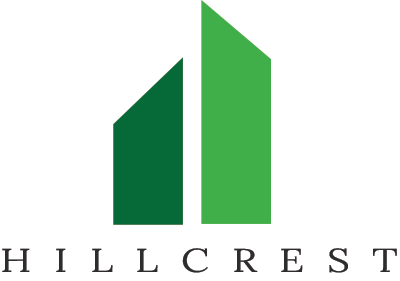Every board should strive to improve HOA community engagement. Homeowner participation is a key component of a successful association. Without active participation from homeowners, projects can stall and decisions can get delayed.
The Importance of HOA Community Engagement
Homeowner engagement is important to any HOA community. Engagement strengthens relationships, not just between the homeowner and the board, but also between homeowners themselves. It builds trust and promotes a sense of community.
Additionally, HOA community engagement plays a key role in decision-making. In a lot of communities, homeowner votes are necessary to push forward with a new project or initiative. Homeowners are also the ones who elect board members, and a low voter turnout can throw a wrench in the whole process.
Finally, homeowner engagement has a significant impact on property values. Potential buyers are more likely to purchase a home in a community with a strong sense of camaraderie and a higher satisfaction rate.
How to Increase Community Engagement in HOA
Important as it may be, HOA community engagement is not an easy thing to improve. Many board members find it difficult to entice homeowners into attending events and participating in meetings.
Here are the ways the board can increase homeowner engagement in an HOA community.
1. Improve Communication Channels
 First and foremost, board members should improve their communication methods. Homeowners may not be receiving updates or prefer to use a different mode of communication altogether.
First and foremost, board members should improve their communication methods. Homeowners may not be receiving updates or prefer to use a different mode of communication altogether.
Board members should use every channel to them. This means sending out a community newsletter (whether physical or digital), utilizing social media, posting on the HOA website, and setting up a mobile app.
Modern technology has made it easier to communicate with residents, but board members should also consider homeowners who aren’t tech-savvy. Elder residents, in particular, may not have access to electronic communications. The HOA board should tailor their methods according to their demographics.
2. Host HOA Events and Social Gatherings
Social gatherings are important to overall morale and camaraderie. How can residents get to know each other and their board members if they aren’t given the opportunity to do so?
An HOA event committee can plan social gatherings throughout the year. These events help bring the community together. They encourage residents to mingle and gain a better understanding of their neighbors. Through these events, HOA boards can encourage empathy and compassion.
There are plenty of events an HOA can plan, but it’s important to diversify. Make sure there is something for everyone. An HOA might consider planning pet-friendly events, too, especially if the community has a high pet population.
Here is a list of social event ideas:
- Holiday parties
- Block parties or barbecues
- Summer pool parties
- Potlucks
- Sports tournaments
- Picnics at the park
- Movie nights
- Cleanup projects
- Game days
3. Encourage Joining HOA Committees
One of the best ways to get homeowners involved is to encourage them to join committees. There are lots of committees residents might take an interest in. The Architectural Review Committee, Social Events Committee, Budget Committee, Violations Committee, and Welcome Committee are just a few examples.
By joining committees, homeowners can make contributions in a more direct capacity. They can practice their planning, critical thinking, and decision-making skills. Plus, if they enjoy serving on a committee, perhaps they will equally enjoy serving on the HOA board in the future. Committees are a great stepping stone for those who are looking to just dip their feet for now.
4. Conduct Surveys
How will the board know how residents feel if they don’t ask them? Surveys are a great tool for that. Board members should perform surveys to gauge resident satisfaction. They can also ask for suggestions on how to improve community life and engagement.
Of course, board members should listen to the residents’ opinions. It’s not enough to just have them fill out a form or questionnaire — acting on it is just as important!
5. Spice Up Board Meetings
Homeowners should be invited to board meetings. Many states require HOAs to hold open board meetings and send a meeting notice to homeowners in advance. This includes Illinois (765 ILCS 160/1-40). At these meetings, the board should allocate time for an open forum wherein members can voice their concerns.
Board meetings can be quite monotonous. A good way to boost HOA community engagement is to make board meetings more fun. The reason why a lot of homeowners don’t attend board meetings is because they tend to be dull. All they do is watch board members discuss and vote. Sure, it might help them stay in the loop and they might get their two cents in, but it’s a boring affair overall.
To increase attendance and HOA engagement, board members should add some flair. Perhaps they can plan a mixer before or after the meeting takes place. Just a simple get-together where people can talk over snacks and beverages. They can also organize games and raffles.
6. Recognize and Reward Participation
 It is important to recognize HOA volunteers who give their time to the community. Board members can do this by featuring active community members in newsletters or social media posts.
It is important to recognize HOA volunteers who give their time to the community. Board members can do this by featuring active community members in newsletters or social media posts.
They can also establish a “Resident of the Month” program that highlights MVPs similar to an “Employee of the Month” program. When residents feel acknowledged, they are more likely to continue participating in HOA activities.
7. Establish Clubs
For larger communities, organizing clubs is a great idea. Through clubs, residents can find and connect with other residents on mutual interests. This can instill a sense of community while encouraging participation at the same time. Plus, they get to indulge themselves in their hobbies with like-minded individuals.
While there are plenty of potential clubs, some of the most popular ones include book clubs, gardening clubs, sports clubs, hiking clubs, photography clubs, and board game clubs. The possibilities are endless.
8. Make Volunteering Easy and Accessible
Sometimes, homeowners want to participate in community matters but have no idea where to begin. Board members should make it easy for residents to volunteer by offering flexible ways for them to get involved. Opportunities can be offered short-term or long-term to allow residents some leeway.
9. Improve Transparency and Accountability
When homeowners don’t know what’s going on in their community, they are less likely to get involved. Board members should improve transparency by making finances, rules, and decisions easily accessible to residents. Minutes should be posted online and distributed physically. Ongoing projects should have regular updates so that residents stay in the loop.
10. Foster a Welcoming Environment for New Residents
 When encouraging HOA community engagement, starting from the very beginning is important. New residents should feel welcome in the neighborhood, which will encourage them to participate in activities.
When encouraging HOA community engagement, starting from the very beginning is important. New residents should feel welcome in the neighborhood, which will encourage them to participate in activities.
Board members should create a welcome packet that includes community guidelines, key contact information, and other important details. The HOA can also create an ambassador program in which existing residents help new residents integrate into the neighborhood. Finally, the board can host orientation events to introduce new residents and educate them.
9. Meet With Residents Face-to-Face
Finally, to improve HOA community engagement, board members should take time to meet with residents face-to-face. Homeowners don’t like it when they don’t know who the board members are. They don’t know who to turn to when they have a problem or have a suggestion. This is more common in bigger communities, where residents aren’t always updated on election results.
Board members should schedule some time for a meet and greet. This will allow residents to put a face to the name and encourage them to be more active within the community.
The Benefits of Increased HOA Community Engagement
Community engagement is clearly important to any homeowners association. Here are more specific benefits that an HOA can reap from improving participation from residents.
- Stronger Sense of Community. Community engagement encourages neighbors to interact with each other. This creates a more welcoming environment for everyone.
- Increased Transparency and Trust. HOA community engagement can minimize misunderstandings through communication. It also makes residents trust board members.
- Higher Voter Turnout in HOA Elections. Improved participation means homeowners are more likely to vote during elections. This ensures that the board members elected are truly representative of the community’s wants.
- Better Compliance With the Rules. When residents feel involved, they are more likely to respect community guidelines.
- Efficient Conflict Resolution. Engagement provides an avenue for open dialogue and problem-solving.
How to Address Apathy in an HOA
Some residents may not feel the need to get involved in community activities. Sometimes, this is due to busy schedules and demanding work lives. Other times, it’s because residents are simply disinterested in HOA affairs.
Apathy kills HOA homeowner participation.
The best way to counteract apathy is to adopt a personalized approach. Board members should reach out to individuals who they feel aren’t as engaged as other residents. They can send targeted invitations or talk to them directly about their concerns.
Many homeowners also feel apathetic because they don’t understand how their participation will benefit them. Board members can address this by showing how participation can lead to improvements. If residents can’t attend meetings in person, board members can make it more inclusive and accessible by allowing virtual attendees.
A Better Community
Prioritizing HOA community engagement benefits the association as well as everyone. When residents feel connected and involved, they contribute to a stronger and more harmonious neighborhood.
Hillcrest offers HOA management services to communities in Chicago. Call us today at 630-627-3303 or contact us online to request a proposal!
RELATED ARTICLES:
- Getting To Know HOA Board Of Directors
- The Problem Of HOA Not Enforcing Rules And Selective Enforcement
- Addressing HOA Complaints And Common HOA Violations





